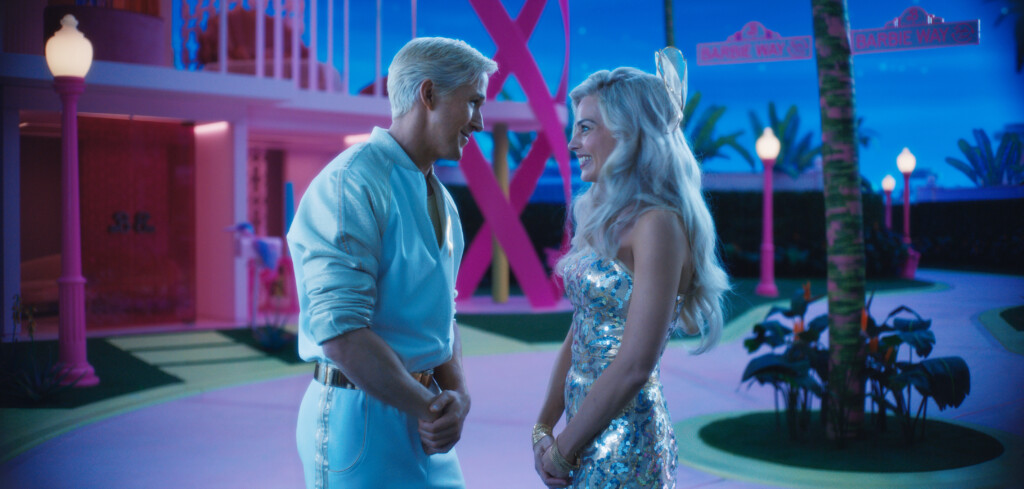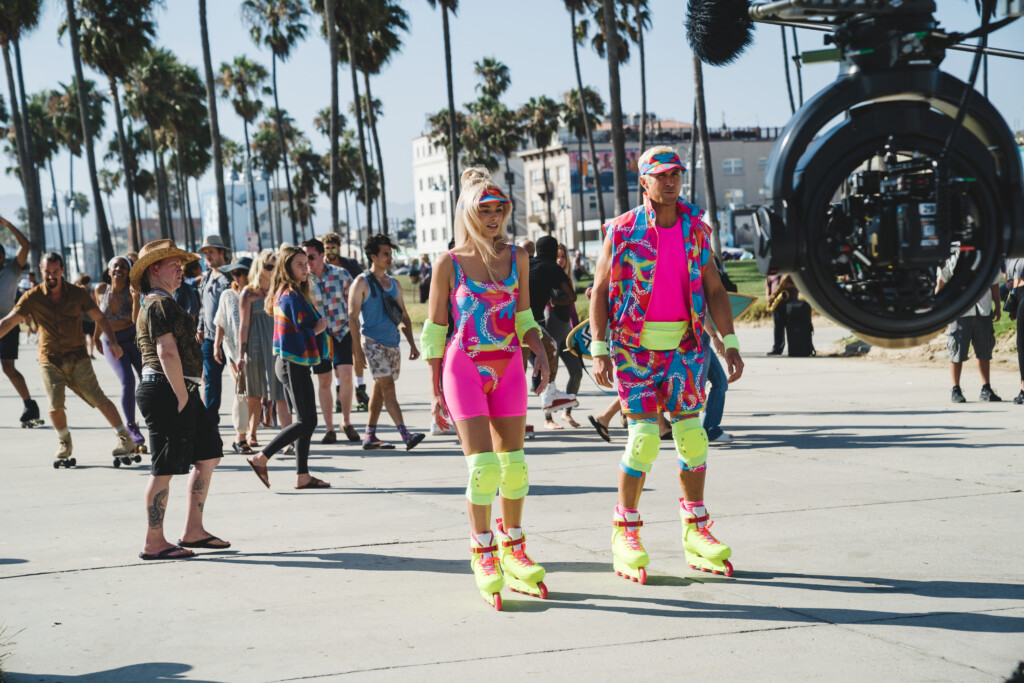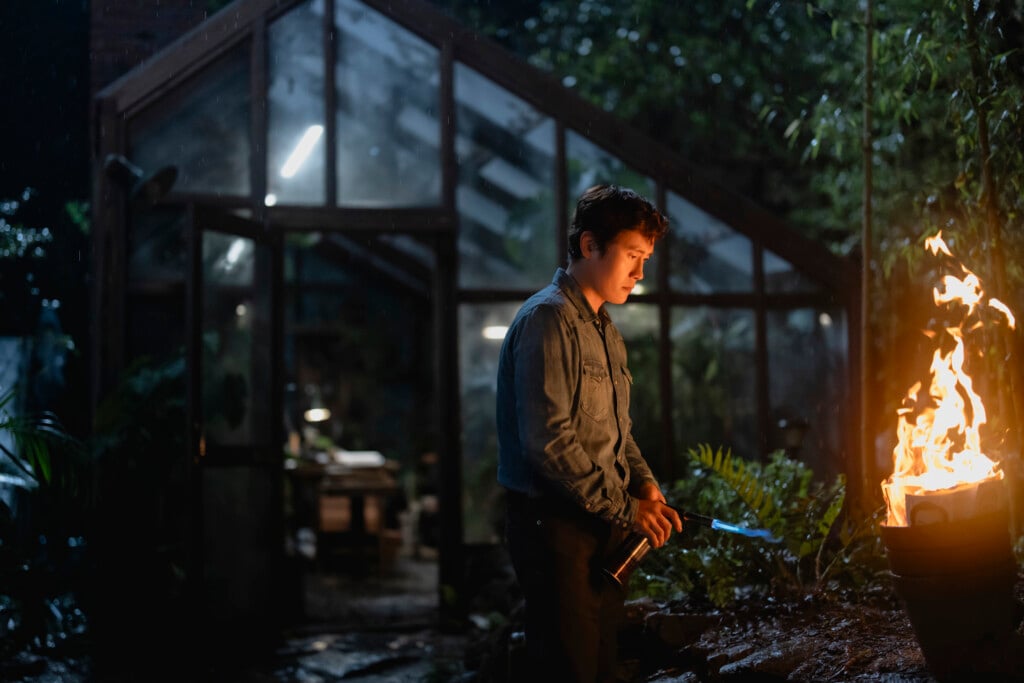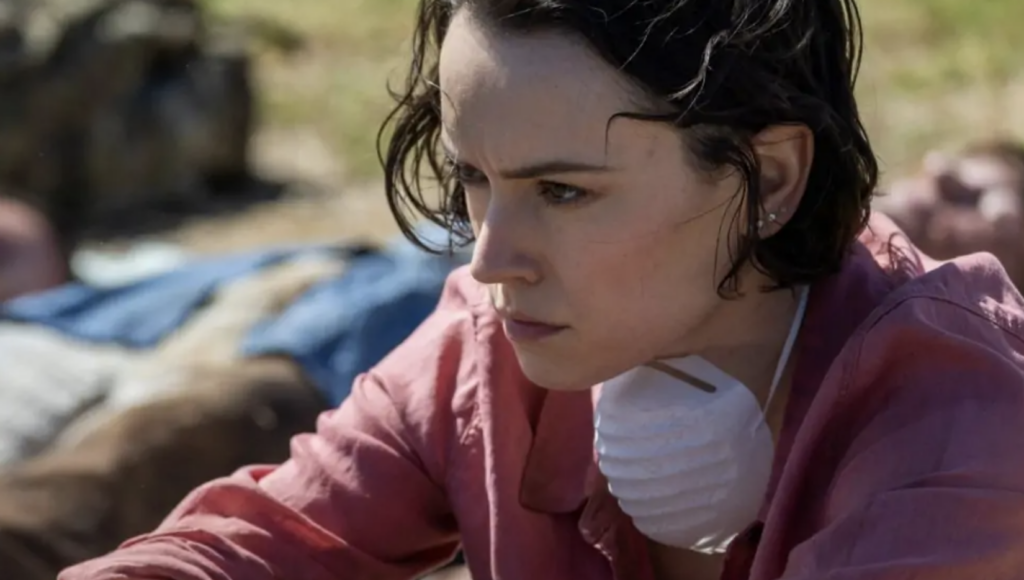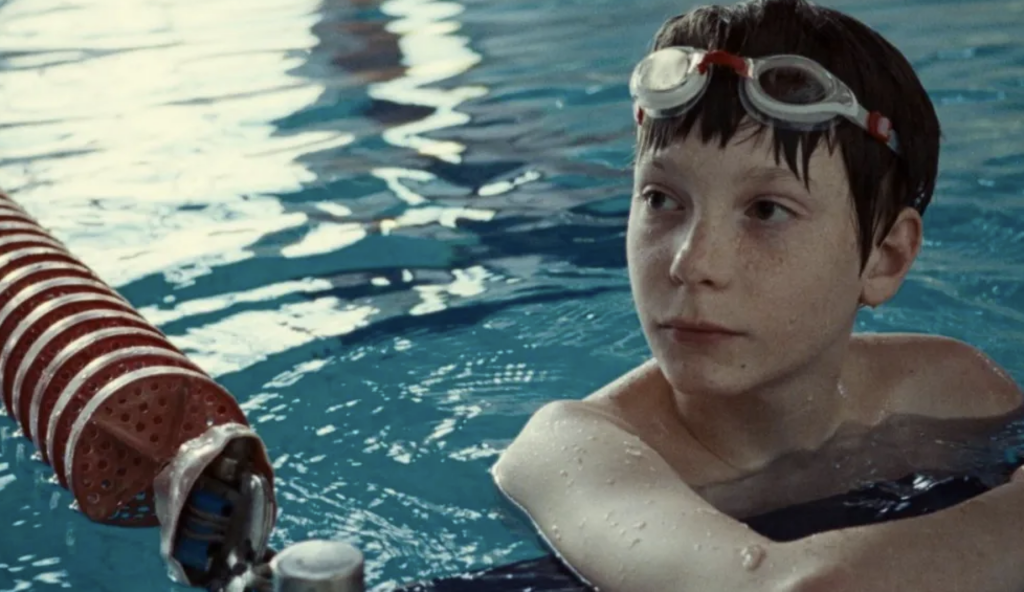It’s a Barbie world. We just live in it.
Leave it to Warner Bros, a studio notorious for thinking it’s giving audiences what they want while simultaneously eating their tail, to produce two commercial works of sublime counterculture entertainment in the same decade. The Lego Movie surprised audiences by taking simple building blocks and turned spun them into a thrilling adventure that spoke to the power of authenticity and creativity. Barbie—one of the best movies of the year—shares these qualities, but examines them in a richer, weirder tapestry that tackles what it means to be an icon and the consequences of setting expectations no one can match.
While the success of The Lego Movie is the natural comparison, Barbie’s truest ally in the trenches of filmdom is the 2001 cult classic Josie and the Pussycats. Both movies buck the trend of what a movie adaptation should be, straddling the line between respecting source material (or dolls) and commenting on both an industry and societal view, while promoting female empowerment.
In Greta Gerwig’s Barbie, reality exists on two different planes. There’s the real world, and then there’s Barbieland, a candy-coated, neon-drenched dream world.
In Barbieland each day is the same, with smiling greetings and a backing track from Lizzo. The weather is always perfect for the beach. Days end with a lavish block party, complete with choreographed dance numbers and bespoke songs. Not to mention that every night is girl’s night.
All of this is possible because Barbieland is a place where all women thrive. There’s peace, acceptance, and a form of equality, in that Kens are basically pretty lapdogs. The inhabitants believe because there is a President Barbie (Issa Rae), a Doctor Barbie (Hari Nef) and a Physicist Barbie (Emma Mackey), the real world views them as heroes. They thrive in their world so human females can do the same in theirs. In theory, at least.
For the original Barbie (a sublime Margot Robbie), life is grand until the day her feet lose their arch and touch the ground. Well, that and the irrepressible thoughts of death that have started to plague her. The other Barbies see these as malfunctions and send her to see Weird Barbie (Kate McKinnon). Her permanent splits, frazzled hair, and haphazard make-up—signs of being played with too roughly—allow her to see beyond their world. Turns out, somewhere in America, a girl is putting all her woes and fears onto her Barbie, causing a rift in the space-time continuum.
Meanwhile, stereotypical Ken (Ryan Gosling, giving it his all) goes about his life as the Yang to Barbie’s Yin. Narrator Helen Mirren sums it up when she states “For Barbie, every day is the best day. For Ken, it’s only the best day when Barbie notices him.”
Where Barbie’s break from her plasticine surroundings is a new concept, Ken seems to have suffered his long ago.
Feeling duty-bound to be by Barbie’s side, he hitches a ride on her adventure to the real world, but Barbie and Ken discover the real world isn’t what they thought. Their realizations divide them and threaten all of reality and Barbiedom. Along the way, a mother (America Ferrera) and daughter (Ariana Greenblatt) are reunited, the CEO of Mattel (Will Ferrell) fights for what he thinks is best, mojo dojo casa houses are created, Ken learns about the patriarchy and Alan (Michael Cera) copes with being the only Alan.
Perhaps the genius of Barbie isn’t just how good it is, but how it comes prepackaged with defenses again potential naysayers. Think the movie pushes a feminist agenda in a way that makes you uncomfortable? That’s your problem, not Barbie’s. Take issue with the incel-ish, bro-y take on Ken? You might be projecting there. Do you feel alienated the more the movie dips into the surreal, while spouting the importance of individuality and being “normal?” Go ahead and sit this one out.
Co-writers Gerwig and Noah Baumbach make Barbie a film that’s as thought-provoking as it is humorous and messy. Some of the smarter jokes get drowned out by easy zingers. The punch of its message is slighted by the fact that Mattel still has products it wants to sell. When all is said and done, though, this is a film about how ideas of success and beauty can be inspiring, but they shouldn’t be the only things people hold true. Sometimes the act of dreaming and being okay with just being okay and flawed is a success in its way, and that’s what makes it magical.
